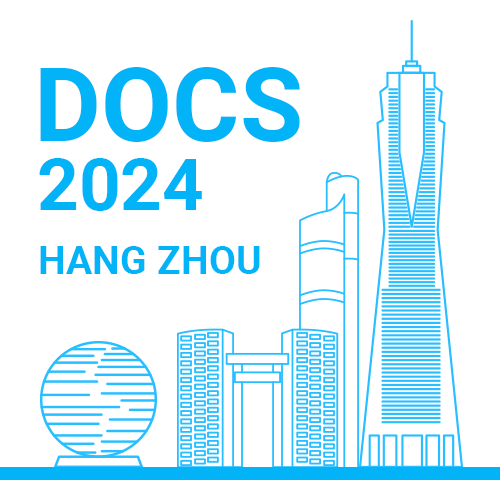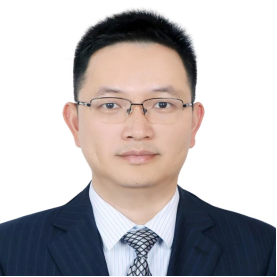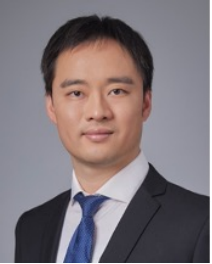
Invited Speaker
Thomas Baeck, Member of Academia Europaea, IEEE FellowLeiden University, Netherlands Thomas Bäck (Fellow, IEEE) received the Diploma degree in Computer Science in 1990 and the Ph.D. degree in Computer Science in 1994 (under supervision of H.-P. Schwefel), both from the University of Dortmund, Germany. He is Professor of Computer Science with the Leiden Institute of Advanced Computer Science (LIACS), Leiden University, Netherlands. His research interests include evolutionary computation, machine learning, and their real-world applications, especially in sustainable smart industry and health. Dr. Bäck has been elected as member of the Royal Netherlands Academy of Arts and Sciences (KNAW, 2021), as IEEE Fellow (class of 2022), and as a member of Academia Europaea (2022). He was a recipient of the IEEE Computational Intelligence Society (CIS) Evolutionary Computation Pioneer Award in 2015, was elected as Fellow of the International Society of Genetic and Evolutionary Computation in 2003, and received the best Ph.D. thesis award from the German society of Computer Science (GI) in 1995. He currently serves as an Editor in Chief for the Evolutionary Computation Journal (MIT Press), Associate Editor for the IEEE Transactions on Evolutionary Computation and Artificial Intelligence Review journals and area editor for the ACM Transactions on Evolutionary Learning and Optimization. He was also co-editor-in-chief of the Handbook of Evolutionary Computation (CRC Press/Taylor & Francis 1997), co-editor of the Handbook of Natural Computing (Springer, 2013), author of Evolutionary Computation in Theory and Practice (OUP, New York, 1996) and co-author of Contemporary Evolution Strategies (Springer, 2013). Speech Title: Automated Configuration and Large Language Models Meet Evolutionary Algorithms Abstract: In machine learning, the optimization of hyperparameters (also called thealgorithm configuration problem) is an important task. I will briefly explain this problem and provide some examples illustrating that this task can be handled by direct global optimization algorithms as well. While algorithm configuration is commonly applied to machine learning algorithms, algorithm configuration for evolution strategies is also an exciting application domain. I will give an example how a combinatorial design space of 4608 configuration variants of evolution strategies can be explored and investigated using data mining. This approach provides an opportunity for discovering the unexplored areas of the optimization algorithm design space. Moreover, it provides a path towards the automated design of optimization algorithms, and I will discuss a first step towards this by using Large Language Models to produce novel optimization metaheuristics. To conclude, I return to real world application examples and illustrate a few of those that my group worked on, over the past more than 20 years. |
|
| Jianqiang Li, IET Fellow, Winner of National Science Fund for Distinguished Young Scholars of ChinaShenzhen University, ChinaProf.Jianqiang Li currently is a full professor at the National Engineering Laboratory for Big Data System Computing Technology, Shenzhen University. He was the recipient of the National Outstanding Youth Fund, the recipient of National level young talents, Guangdong Outstanding Youth Funds. He is Chief Scientist of the National Key R&D Program of China. His major research interests include Artificial Intelligence, robotic. Prof. Jianqiang Li has published more than 200 refereed papers in international leading journals and primer conferences, such as IEEE TEVC, IEEE TCYB, IEEE ToN, IEEE TMC, AAAI, IEEE INFOCOM, etc. His google scholar citation is over 9800. He is the inventor of 53 Chinese pending patents (29 patent authorizations) and 10 PCT international invention patents. He won the first prize of Wu Wenjun’s Artificial Intelligence Science & Technology Award, which is initiated and sponsored by the Chinese Artificial Intelligence Society He won the first prize of the China Automation Association Science & Technology Award. Speech Title: Data-driven intelligent system perception and decision Abstract: The data-driven intelligent system can effectively improve its perception and execution efficiency. The report introduces research on network collaborative perception, collaborative network construction, and optimized analysis and decision-making of intelligent systems. Finally, the relevant research results are applied to special monitoring robots and medical health intelligent monitoring systems. |
| Honggui Han, Winner of National Science Fund for Distinguished Young Scholars of ChinaBeijing University Of Technology, ChinaHonggui Han, professor, doctoral supervisor, and dean of the School of Computer Science. He has been engaged in research on intelligent control of complex systems, and has been selected for the National Science Fund for Distinguished Young Scholars, the National Science Fund for Excellent Young Scholars, the Young Beijing Scholar, the Young Scientist of the Chinese Automation Society, and the Outstanding Young Scientist of Beijing Universities, etc. As a result of the research, he has published more than 100 academic papers and written 5 books; he has obtained more than 60 authorized Chinese/American invention patents, has presided over/participated in the formulation of more than 10 national/group/local standards. He has won the second prize of the National Science and Technology Progress Award, the first prize of the Ministry of Education Science and Technology Progress Award, and the first prize of the Wu Wenjun Artificial Intelligence Science and Technology Progress Award, etc. He is currently the director of the "Digital Community" Engineering Research Center of the Ministry of Education and the director of the Beijing Key Laboratory of "Computational Intelligence and Intelligent Systems". He also serves as an editorial board member of journals such as China Science: Technical Sciences, IEEE Transactions on Cybernetics, etc. Speech Title: Multi-objective dynamic collaborative optimization for the municipal wastewater treatment process Abstract: Municipal wastewater treatment is an effective way to protect the environment and realize water resource recycling. However, due to the multi-processes, multi-working conditions, time-varying and other characteristics of municipal wastewater treatment process, optimal control based on a single scale, a single level, and a single goal cannot guarantee the optimum of the overall operation. Multi-objective collaborative optimization control achieves multi-objective optimization between local and global, short-term and long-term, and efficiency and safety in the municipal wastewater treatment process by constructing performance indicators at different time scales and designing a multi-conflict objective dynamic optimization method. It solves the problem of real-time dynamic optimization setting of key variables in the municipal wastewater treatment process, and effectively reduces the operating cost. |
Junchi YanShanghai Jiao Tong University, ChinaJunchi Yan is currently a Full Professor with School of Artificial Intelligence and Department of Computer Science and Engineering, Shanghai Jiao Tong University. Before that, he was a Senior Research Staff Member with IBM Research China. He serves as Associate Editor for IEEE TPAMI, Pattern Recognition Journal, and Area Chair for ICML, ICLR, NeurIPS etc. He has received major funding in AI from NSFC and MOST. His main research interest is machine learning and its intersection with areas e.g. operations research, robotics and quantum computing. Speech Title: Learning for constrained problems: deep dive to combinatorics and planning for autonomous driving Abstract: In this talk, the speaker will introduce some recent works on machine learning of solving constrained problems, with two typical examples: 1) combinatorial optimization and 2) autonomous driving. For the former, some neural architectures are devised for end-to-end problem learning and solving; for the latter, model-based reinforcement learning is adopted with a latent world model. The hope is that the talk could attract more attention to the constrained problem solving via machine learning. |
|



